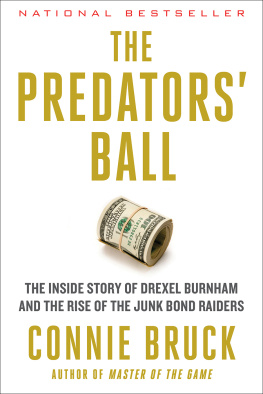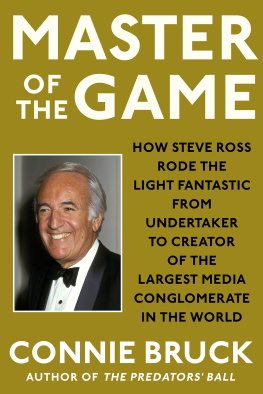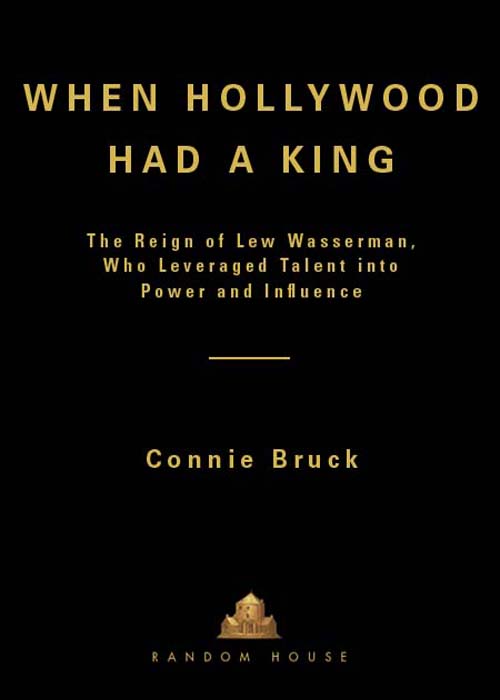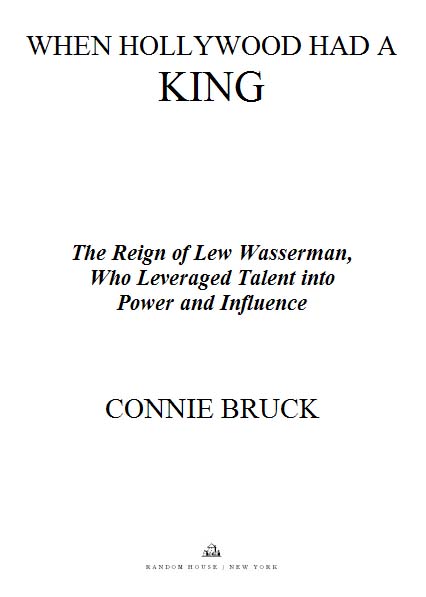Connie Bruck - When Hollywood Had a King: The Reign of Lew Wasserman, Who Leveraged Talent into Power and Influence
Here you can read online Connie Bruck - When Hollywood Had a King: The Reign of Lew Wasserman, Who Leveraged Talent into Power and Influence full text of the book (entire story) in english for free. Download pdf and epub, get meaning, cover and reviews about this ebook. year: 2003, publisher: Random House, genre: Detective and thriller. Description of the work, (preface) as well as reviews are available. Best literature library LitArk.com created for fans of good reading and offers a wide selection of genres:
Romance novel
Science fiction
Adventure
Detective
Science
History
Home and family
Prose
Art
Politics
Computer
Non-fiction
Religion
Business
Children
Humor
Choose a favorite category and find really read worthwhile books. Enjoy immersion in the world of imagination, feel the emotions of the characters or learn something new for yourself, make an fascinating discovery.

- Book:When Hollywood Had a King: The Reign of Lew Wasserman, Who Leveraged Talent into Power and Influence
- Author:
- Publisher:Random House
- Genre:
- Year:2003
- Rating:3 / 5
- Favourites:Add to favourites
- Your mark:
When Hollywood Had a King: The Reign of Lew Wasserman, Who Leveraged Talent into Power and Influence: summary, description and annotation
We offer to read an annotation, description, summary or preface (depends on what the author of the book "When Hollywood Had a King: The Reign of Lew Wasserman, Who Leveraged Talent into Power and Influence" wrote himself). If you haven't found the necessary information about the book — write in the comments, we will try to find it.
The Music Corporation of America was founded in Chicago in 1924 by Dr. Jules Stein, an ophthalmologist with a gift for booking bands. Twelve years later, Stein moved his operations west to Beverly Hills and hired Lew Wasserman. From his meager beginnings as a movie-theater usher in Cleveland, Wasserman ultimately ascended to the post of president of MCA, and the company became the most powerful force in Hollywood, regarded with a mixture of fear and awe.
In his signature black suit and black knit tie, Was-serman took Hollywood by storm. He shifted the balance of power from the studioswhich had seven-year contractual strangleholds on the starsto the talent, who became profit partners. When an antitrust suit forced MCAs evolution from talent agency to film- and television-production company, it was Wasserman who parlayed the control of a wide variety of entertainment and media products into a new type of Hollywood power base. There was only Washington left to conquer, and conquer it Wasserman did, quietly brokering alliances with Democratic and Republican administrations alike.
That Wassermans reach extended from the underworld to the White House only added to his mystique. Among his friends were Teamster boss Jimmy Hoffa, mob lawyer Sidney Korshak, and gangster Moe Dalitzalong with Presidents Johnson, Clinton, and especially Reagan, who enjoyed a particularly close and mutually beneficial relationship with Wasserman. He was equally intimate with Hollywood royalty, from Bette Davis and Jimmy Stewart to Steven Spielberg, who began his career at MCA and once described Wassermans eyeglasses as looking like two giant movie screens.
The history of MCA is really the history of a revolution. Lew Wasserman ushered in the Hollywood we know today. He is the link between the old-school moguls with their ironclad studio contracts and the new industry defined by multimedia conglomerates, power agents, multimillionaire actors, and profit sharing. In the hands of Connie Bruck, the story of Lew Wassermans rise to power takes on an almost Shakespearean scope. When Hollywood Had a King reveals the industrys greatest untold story: how a stealthy, enterprising power broker became, for a time, Tinseltowns absolute monarch.
Connie Bruck: author's other books
Who wrote When Hollywood Had a King: The Reign of Lew Wasserman, Who Leveraged Talent into Power and Influence? Find out the surname, the name of the author of the book and a list of all author's works by series.












